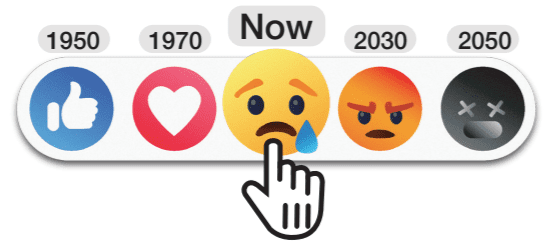CONTENT WARNING: Brief Mentions of Hate Crime and Discrimination
Controversy is the highlight of the first world experience. In a time when disagreement is substituted for being opinionated, we pride ourselves on our abilities to argue and debate – to get our points across irrespective of the confirmatory value of our assertions. Having an opinion, even as invalid as they come, has become the norm. Seemingly trivial, this has massive implications on our functioning as a society, particularly when a large number of us start living by certain erroneous ‘facts of life’. Not only are these ‘facts of life’ damaging, but they also mislead us in far too many ways. While I don’t have the time or resources to censor everything that is ruthlessly brought to light by the larger, uninformed public, I do reserve the right to correctly stand by what I care for, and I stand by the notion of happiness and what exactly it means to us.
No one here needs any convincing that we are unhappy. There are constant reminders in the form of unpaid student loans and low job prospects post-graduation. We are lying about the status of diversity and acceptance, because even at our best, hate crime and discrimination are ripping away at the fabric of our society faster than ever. At the micro-level, there is the falling number of likes, comments and followers on Instagram, your empty DMs and the lack of notifications on your mobile phone. Facebook is held together by the forces of depressed teenagers, unwilling young adults and exhausted seniors. It is the universe telling us that we are even more alone despite the hundreds of connections on social media. So the question, then, is what now?
I think we would all benefit from a little sanity check. Remember the good old times? The pre-internet era when people had to physically come knocking at your door just to say, “Hi, how’s it going?” And you had to purposefully go shopping, because buying handbags and other goods was not simply a click away? When binge-watching was not particularly an issue because there was next to nothing to binge on? Probably not. Allow me to help you visualise that.
We are talking about a time when the only creepy stalkers in existence were the shady people lurking around the takeaway drive-through after dark. A time when people only ever spent their lives with others of the same colouring and heritage as them, those who shared their morals and founding beliefs. Foreigners were exactly that, foreign: exotic and exquisite. It was a time of global peace because the world, in its entirety, was tossed from one colonising empire to another, so the very concept of a civil war was trivial. Back then, things were good. We used to be happy.
Today, our inboxes threaten to explode from the persistent message requests from never-before-met strangers. There is a constant red-flag flashing in the back of our minds whenever a mildly-stalkerish person materialises out of thin air. In this era, there is socio-political turmoil surrounding the very concepts of racial, ethnic and gender diversity. Education and empowerment seem to do too little to help us here. Wars break out with every dawn, spanning the surface of the earth and leaving nothing but a volatile minefield of catastrophic destruction and dire hopelessness. No matter where we go, what we do, who we pretend to be, disaster plagues our existence.
But guess what? We, in all our first-world glory, are living behind the veil of a fabricated experience. We make weak attempts to mend the tainted, dysfunctional face of reality, thinking that a social media shout-out, an online campaign, or even a passionate word-vomit on Facebook is sufficient for the job. That maybe if we got another dozen likes and shares, we could package all the grief and mishap and toss it away and out of our lives for good. Maybe then, we could be happy.
The issue is, we are close to this point, but not close enough. We are doing things right, but not quite right enough. For you see, the 21st century is both gifted and tested with the intimidating power of awareness. Interconnectedness has become a liability after it started as our saviour.
And now, what if I told you that perhaps we never were happy? Perhaps the sole distinction between now and then was that we didn’t have as many conventions for our unhappiness. That the mere development of the concepts of privacy, equality, peace and prosperity has been our ultimate undoing. Perhaps we were happier then because we could not characterise the world’s shortcomings as crucially as we do today. We were happier because life’s unlabelled inconveniences seemed trivial. Or was that just another pretense of happiness in itself?
We acknowledge the Ngunnawal and Ngambri people, who are the Traditional Custodians of the land on which Woroni, Woroni Radio and Woroni TV are created, edited, published, printed and distributed. We pay our respects to Elders past and present. We acknowledge that the name Woroni was taken from the Wadi Wadi Nation without permission, and we are striving to do better for future reconciliation.
